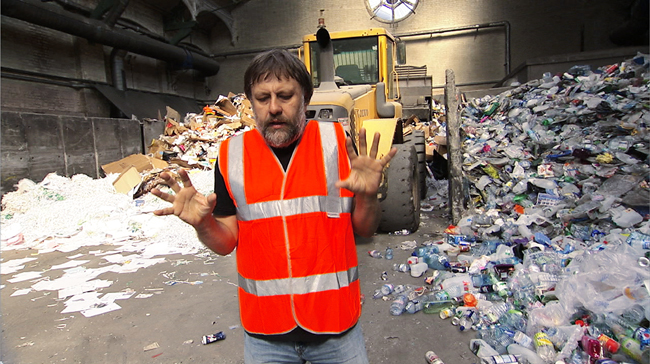|
Reviews of Recent Independent, Foreign, & Documentary Films in Theaters and DVD/Home Video

EXAMINED LIFE Informative and not preachy, highly intellectual but never snobbish, Examined Life is exactly the kind of film that today’s art-house audience should check out—an episodic documentary featuring nine of the world’s leading philosophers delivering basic bullet points from their latest work. The overarching theme, though not necessarily spoken outright, is the role of moral responsibility. Each subject is given a 10-minute block for discussion, forming a series of short chapters, the only punctuation coming in the form of the ingenious, however grandiloquent, musings of the charismatic Dr. Cornel West. The highlights of his interview are interspersed judiciously throughout, like a Greek chorus. Joking on the restrictive time limit, Jacques Derrida protégé Avital Ronell remarks dryly that perhaps it’s not enough time “for a person like me.” True, the discussions themselves are pretty rich for 10 minutes each. Director Astra Taylor constructs them in a conversational form, but essentially, an entire book’s worth of ideas is packed into each single chapter. Make sure you’re caffeinated beforehand. But unlike the hippy-esque ramblings of a Waking Life (2001), and without the cute gotcha attitude of a What the Bleep do we Know? (2004), Taylor’s film mostly has, for all its complexity, a clear focus and a gripping imperative. World famous thinkers like Peter Singer and Slavoj Zizek not only idealize humanity’s moral place in this world, they incite a pragmatic response, specifically to the meat and waste industries, respectively. It is here where Taylor’s visual strategies are most effective. The eccentric and hilarious Zizek, the “world’s most famous philosopher,” and the eponymous subject of Taylor’s first feature (Zizek!, 2005), dons an orange safety vest and parades around an industrial trash heap, gleaning from the wreckage a new working definition of ecology. “We must start to consider ourselves as more artificial,” he says, describing a human’s place as apart from nature, rather than a part of it. The imperative is what makes this a must-see. Documentaries on general philosophy often overlook the dire situation facing the globe, while specific-issue films, for all the progress they make toward ameliorating a specific issue, tend not to discuss the idea that perhaps the dominant culture’s entire way of thinking is wrong. In Examined Life, nine of the world’s leading thinkers are saying loud and clear: the system is in trouble, so change your thoughts. A similar film, coming in under the radar, is Linas Phillips’ Great Speeches from a Dying World. Each of his 10 singular chapters describes the life of one of Seattle, Washington’s homeless population, culminating in 10 recitations by the subjects themselves of great speeches from history’s most eloquent orators, including Sojourner Truth and two Kennedy’s. The framework is quite similar—Phillips maintains a focus in each chapter on one very special case, while an addict named Tomey provides interstitial material between the chapters, his multiple failures and successes representing the overall plight of the nation’s least fortunate. Where Phillips’ film
relies too heavily on sentimentality, though, Taylor’s sometimes
retreats to a heady comprehensiveness. Kwame Anthony Appiah’s notions of
a “cosmopolitan morality,” for instance, are smartly put and certainly
eye opening, but he offers no easy application for these compound
ethics. His point, that multiculturalism is important to recognize but
there should be clear distinctions in order to maintain cultural
identity, is a good one, but it becomes lost—unfortunately, actions have
always spoken louder than ideas. Examined Life may be a
philosophical survey for the enlightened layperson, but higher truths
are most important when combined with an application, especially when
that application has something to do with fixing some of humanity’s most
basic problems. Michael Lee
|

